Once a person has realized the damaging effects of cocaine for themselves, the negative aspects of their addiction start to come into much clearer focus. This realization is one of the first steps that must be taken before an addict can receive the assistance that they need.
While the steps that are going to be outlined are as helpful as possible, your success is going to be focused on your personal willingness to quit. The biology of addiction can be tough to navigate [https://bit.ly/2K05ybA] for many, though. The brain becomes hard wired to seek out pleasure in a certain way.
Getting on the right path is easier said than done. Those who remain on the right path rely on the assistance that Crosspointe Recovery can provide. We understand that it is not the destination that matters most. It is the journey that is going to be taken to get there.
After all, it is a marathon….not a sprint. While cocaine usage comes with a very short high, the euphoria that it can provide is undeniable to a user. There is a reason why this is one of the hardest drugs to quit.
Putting a Stop To Cocaine Usage
The process may seem simple enough but without the help of addiction treatment professionals, an addict is going to struggle to reform. The withdrawal symptoms that you are going to experience will be challenging. The cravings are hard to kick, depression and anxiety are common and there are no shortage of physical symptoms.
That’s why addiction treatment centers like Crosspointe Recovery are so important. The process of quitting cocaine can put a user’s life at risk if they are not careful. However, there is more to the process that simply choosing an addiction treatment clinic. In addition to heading to Crosspointe Recovery, there are other factors at play.
The Five Most Essential Steps To Quitting Cocaine
1. Use Your Time More Wisely
When an addict has too much time on their hands, that is when trouble can arise. The cravings are furthered when an addict does not fill up their schedule. Be sure to find positive activities to pass the time. Start projects at home. Make time for exercise. Take a moment to think about your short term plans and your long term plans. The average craving tends to be time sensitive. Stay busy and give it time to pass.
2. Visit a Counselor
Once the initial steps have been taken and the addict is reintegrating into a normal routine, counseling is important. The counselor will talk the patient through the recovery process and give them the tools that they need to be successful. It can be hard to truly understand the various factors that cause a person to use. A counselor helps a patient to identify these factors and make sense of them. The thought process that fuels usage is broken down and the patient is given the tools that they need to fix their broken relationships.
3. Create a Support System
There are a wide range of addicts who will try to handle the quitting process on their own. Since they do not wish to involve family and friends, this causes them to go about this task in the wrong way. Having a support system is hugely important to long term success. When you take the time to share your experiences with your friends and loved ones, they can offer the love and support that you need most. Cocaine Anonymous and Narcotics Anonymous also provide a valuable support group for those who seek to share their experiences with those who truly understand.
4. Abstinence
This may seem like a no brainer but it is easier said than done. The average user will tend to reward themselves with cocaine when they accomplish various tasks. Once that reward no longer exists, it can be difficult to find the same motivation. Do not replace cocaine with alcohol, marijuana or any other substances. Total and complete abstinence is necessary. Otherwise, the addict’s resistance to cocaine is going to be severely tested.
5. Head to an Addiction Treatment Facility
Crosspointe Recovery is here to help. Allow our skilled team of professionals to assist you. The effects that withdrawal is going to have on your health need to be closely monitored, for your own safety. As soon as the withdrawal stages are completed, you will receive customized treatment that is designed to assist you with your specific needs.
The patient is going to be taught how to recognize their triggers and manage their stressors. They will be given the tools that they need to establish a healthier lifestyle as well. The patient is given all of the tips and pointers that they need to avoid a relapse once the treatment process is complete. Developing positive habits is not always easy but with the help of the professionals, a total and complete recovery is made easier. Contact us today!





